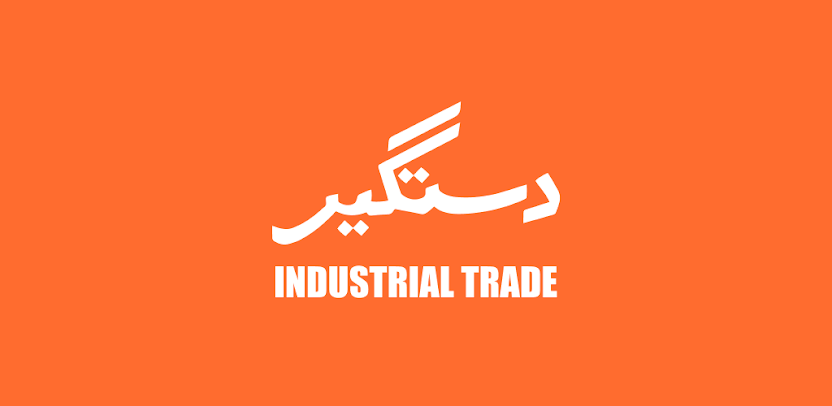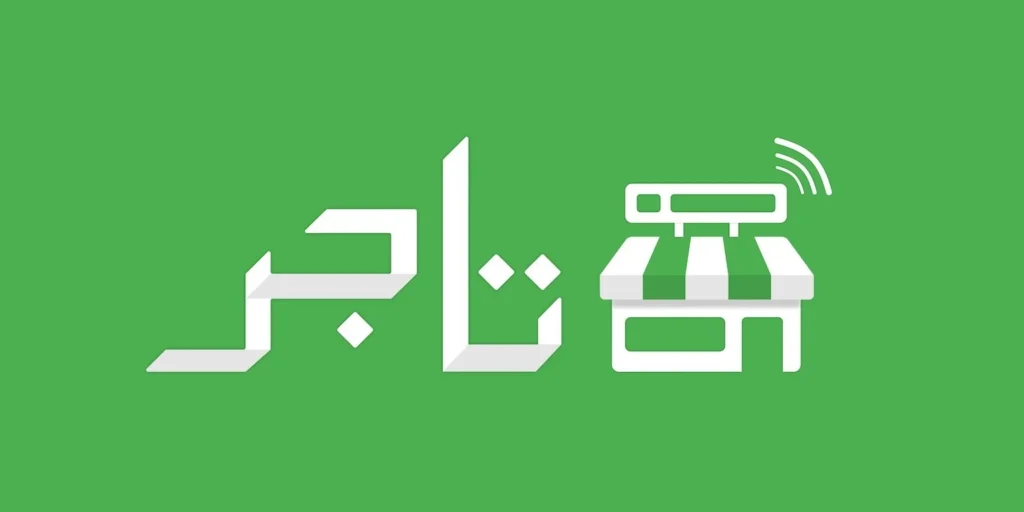
Pakistan has made significant strides in the global startup landscape, with four of its cities featuring among the top 1000 cities to set up a startup globally. This achievement is a testament to the country’s growing startup ecosystem and the innovative spirit of its entrepreneurs.
With a large and growing population, coupled with a thriving youth demographic, Pakistan presents immense potential for startups to tap into. However, operating in a market as volatile as Pakistan can be challenging, but it also offers several opportunities for those who dare to dream big.
As we embark on the new year of 2024, we want to take a closer look at some of the most promising startups in Pakistan that are worth watching out for. From revolutionizing the retail industry to providing affordable healthcare solutions, these startups are making waves in their respective fields.
But before discussing these startups, there is a need to give a brief overview of what startups are and Pakistan’s current startup ecosystem
- Daraz
- Dastgyr
- Telemart
- NayaPay
- SadaPay
- Tajir
- Bazaar Technologies
- Dawaai. pk
- CreditBook
- PostEx
Understanding startups
Startups are businesses that aim to disrupt industries and change the world by creating new products, services, or business models that address unmet needs or improve upon existing ones. They often rely on innovation and technology to differentiate themselves from established players and create new markets. Startups typically have a strong focus on scaling their operations quickly, which can lead to high growth rates and potentially eye-popping valuations.
Many startups are focused on technology and use digital platforms to reach customers and users around the globe. Examples of well-known startups include Facebook, Amazon, Apple, Netflix, and Google, as well as newer entrants like WeWork, Peloton, and Beyond Meat. These companies have disrupted traditional industries and created new markets, changing the way we live, work, and consume goods and services.
Pakistan’s Startup Ecosystem
Pakistan’s startup ecosystem has shown remarkable growth and development in recent years. According to the “Global Startups Ecosystem Index 2021,” Pakistan ranks 75th globally and 2nd in the South Asian region. Currently, four cities in Pakistan – Lahore, Karachi, Islamabad, and Peshawar – are among the top 1000 cities globally for starting a business, showcasing the country’s potential for entrepreneurial activity.
In 2021, Pakistan startups raised a record $125 million across 35 unique deals, almost doubling the total raised in all of 2020. This impressive growth can be attributed to the increasing interest of big-name VC investors like Kleiner Perkins, who led Tajir’s $17MM Series A round in June 2021.
The pakistan government has also played a huge role in the positive turnaround of the startup ecosystem of the country. Recently, the government implemented policies such as the Digital Banking Policy (SBP) and Special Technology Zones, which provide several tax exemptions and incentives to startups. Additionally, the recently passed Companies Amendment Act (2021) recognizes startups and provides a legal framework for them.
International donor agencies and actors have also taken notice of Pakistan’s progress and are aligning their agendas in favor of entrepreneurship. All these factors combined paint a bright picture for the future of startups in Pakistan.
Now, knowing the startup ecosystem in Pakistan, let’s consider the 10 best startup businesses to watch out for in 2024!
10 best startup business in Pakistan
The Pakistan startup scence is filled with many emerging companies, however, here are 10 startup companies that are here to stay;
1. Daraz

Daraz was founded in 2012 by Ahmed Khan, Farees Shah, Muneeb Maayar, and Muhammad Ahsan Raza. It is currently regarded as the most successful online retailer and e-commerce store in Pakistan. Its operations do not stop in Pakistan but extend to Sri Lanka, Bangladesh, and Nepal.
The company caters to various industries, such as fashion, e-commerce, and shopping, and offers a wide array of branded products, including clothing, footwear, accessories, jewelry, and cosmetics accompanied by convenient doorstep delivery services, enhancing the shopping experience for its customers.
The Daraz mobile app, which serves as the home to their marketplace, is a hub of their e-commerce ecosystem. Thanks to this cutting-edge technology you as a Seller/buyer can now transition your business online and buy/sell with ease.
2. Dastgyr

Dastgyr is a unique B2B eCommerce platform that specializes in the distribution of engineering, agricultural, chemical, and construction products. Established during the COVID lockdown in 2020 by Muhammad Owais Qureshi and Zohaib Ali, dastgyr has helped over 2 million retailers in Pakistan by enabling them to purchase from a wide range of over 2,000 products from the comfort of their homes. The platform ensures next-day doorstep deliveries and provides microloans in cases where customers have a shortage of cash.
Notably, Dastgyr’s operation extends beyond Pakistan to include the UK, UAE, Saudi Arabia, and Qatar, thus providing local manufacturers and wholesalers a chance to partake in the international market. With an initial investment of $300,000, Dastgyr has since raised $3.5 million from global investors, including SOSV, positioning itself as a significant player in the international B2B eCommerce space.
3. Telemart

Telemart is another leading e-commerce company making waves in Pakistan. Established by Ahmed Rauf Essa in 2014, Telemart is known for its tech-based product range featuring mobiles, laptops, tablets, watches, and other accessories. The company currently has both a robust online platform and a formidable offline presence with 26 stores spread across 20 cities.
One of Telemart’s unique offerings is the sale of premium gold-plated items, which extends to a wide selection of products from mobile phones and laptops to watches and jewelry. This unique initiative has placed Telemart among the top three global resellers of gold-plated products in the country. This venture has brought Telemart not only national recognition, with two national awards but also global accolades for its founders winning 11 global awards and securing a feature in Forbes’ ’30 under 30′ list in 2019.
4. NayaPay

Aside from emerging e-commerce companies, the finance industry has also been delved into by startups like Nayapay. NayaPay is a fintech startup in Pakistan founded in 2016 that serves as an electronic money institution governed by the State Bank of Pakistan.
It provides a secure, quick, and reliable alternative to conventional banking, but without all the hassles of account opening or annual fees, ensuring full transparency. NayaPay’s unique offerings include fully integrated POS machines for businesses that are compatible with most wallets, credit, and debit cards. Moreover, NayaPay Arc allows you as a business owner to establish and share payment links with customers without the necessity of a website.
Nayapay has gained significant industry recognition, demonstrated by winning the Best Fintech Award at the Pakistan Banking Awards 2023. It’s also one of just four companies licensed as an Electronic Money Institution (EMI), reinforcing its regulatory approval and market accession. Contributing to NayaPay’s potential impact and growth is the financial support it received from Zayn VC, a venture capital firm known for backing prominent tech startups, indicative of robust investment confidence.
5. SadaPay

Similar to NayaPay, SadaPay is a groundbreaking neo-bank founded by Brandon Timinsky in 2018. Rooted in Islamabad, it has grown to become one of Pakistan’s premier startups.
Using cutting-edge technology, SadaPay ensures high-level security for customers’ funds, delicate personal information, and digital wallets. As it operates without physical branches, in just two-minute you can register on the platform saving you from all the queuing characteristic of conventional banking methods. Besides this, it provides simplified payment procedures for global money transfers and receipts.
According to a prediction made by a London-based fintech, SadaPay could be the fastest-growing mobile wallet globally by 2025. This is shaping to be true as SadaPay has enabled Apple Pay invoicing for freelancers in Pakistan, symbolizing its commitment to expanding its services.
6. Tajir

Tajir is one startup that has earned the respect of many users. Founded by two brothers Babar Khan and Ismail Khan in 2018, Tajir is a Lahore-based B2B e-commerce marketplace exclusively catering to local mom-and-pop (kiryana) stores.
Through its Urdu-only app-based platform, Tajir simplifies the inventory procurement process for these stores across Central Punjab, mainly Lahore, offering an array of FMCG products ranging from food staples like rice and wheat to soft drinks, biscuits, and shampoo.
Tajir addresses the challenges faced by retailers due to the cumbersome procurement system in Pakistan’s retail industry. It eliminates the need for retailers to conduct time-consuming negotiations with multiple suppliers by providing an online platform to inquire about goods, ensuring a smooth and transparent process. What used to take hours to complete is now finalized in just a few minutes.
In the funding department, Tajir raised $1.8 million in June 2020 from a host of international and local investors. Investors include San Francisco’s Pioneer Fund, Singapore’s Golden Gate Ventures, Pakistan’s Fatima Gobi Ventures and Karavan, Dubai-based VentureSouq, and several angel investors from the Middle East. This array of backing attests to Tajir’s potent traction within the B2B e-commerce marketplace.
7. Bazaar Technologies

Bazaar Technologies is another startup that addresses the complicated retail sector of the country. It was founded by Saad Jangda and Hamza Jawaid in June 2020, and aims to improve efficiency and reduce operating costs in Pakistan’s fragmented retail sector.
One standout product of Bazaar is Easy Khata, a user-friendly bookkeeping application that helps businesses transition from paper-based systems to secure, digitized versions. Additionally, Bazaar Technologies launched Bazaar Credit, which offers short-term loans to businesses.
Bazaar Technologies has attracted the support of 17 investors, including Indus Valley Capital and Zayn Venture Capital (formerly Zayn Capital). On March 15, 2022, the company completed a $70 million Series B funding round, reflecting its founders’ ambitious vision and confidence in its growth potential.
8. Dawaai. pk

We can’t talk about startups making headway in Pakistan without mentioning Dawaai. It is a leading digital health information platform founded by Furqan Kidwai in 2013 to improve the health sector of the country.
The platform not only offers a vast selection of health products and services but also connects pharmacies and generic pharmaceutical providers through an online network. As a pharmacy-led healthcare group, Dawaai’s mission is to deliver convenient and high-quality integrated pharmacy services, redefining the retail pharmacy experience.
Boasting a team of 101 to 250 employees, Dawaai has garnered financial support from eight investors, securing a total funding amount of $9,500,000 across six funding rounds. This funding showcases the startup’s impactful contributions to the healthcare industry in Pakistan and its potential for future growth and innovation.
9. CreditBook

Founded in 2020, CreditBook is aimed at enhancing the financial performance of small and medium businesses across Pakistan. It began with a simple digital ledger, evolving to establish secure software that helps millions of businesses manage their credit, sales, and expense cycles effectively.
CreditBook offers a mobile app that businesses and vendors can use to digitize their ledgers, manage them on the go, and automatically reconcile their accounts. In addition to providing a secure, backed-up platform for data, it also aids users in scheduling free payment reminders, helping reduce instances of bad debts.
In terms of funding, CreditBook raised $11 million in a pre-Series A round in 2021. This funding event was led by American investment firm Tiger Global Management and firstminute Capital. Other participations included Better Tomorrow Ventures, Ratio Ventures, VentureSouq, i2i Ventures, Banana Capital, Sriram Krishnan, and others, pointing to the high potential and impact CreditBook has within the fintech space.
10. PostEx

Last on our list is PostEx. PostEx was founded in April 2020 by Omer Khan, Saad Mahmood, Babar Razzaq, and Adil Naseem. It is an online payment solution platform for e-commerce businesses. It offers upfront payment collection for cash-on-delivery orders and payment acceptance features at e-commerce stores.
The company stands out in the industry by enabling vendors to accept cash-on-delivery orders without the usual wait for payment, thus modernizing the standard delivery process with fast and upfront cash for orders. This simplifies the delivery process and significantly reduces cash-flow issues for businesses.
PostEx also offers its financial and logistics platform to address the challenges of payment cycles and transactions. Retailers can use PostEx’s payment gateway to accept not only cash-on-delivery payments but also credit card, bank account, and mobile wallet payments on their websites.
As for funding, PostEx has received a total of $8.6 million to date, including $1.5 million in seed funding and $7.1 million in Series A funding. This substantial financial backing underscores the startup’s innovative offerings and a growing impact in the e-commerce and delivery industries.
Conclusion
So, there you have it, folks – the top 10 technologies to get your hands on in 2024. Whether it’s blockchain or AI, these fields are brimming with opportunities. Remember, staying ahead in your career means continuous learning and upskilling. Choose a domain, dive in, and set the stage for an exciting tech journey
. And hey, don’t forget to like and subscribe for more tech insights. What technology excites you the most? Drop your thoughts in the comments and keep the conversation going!


